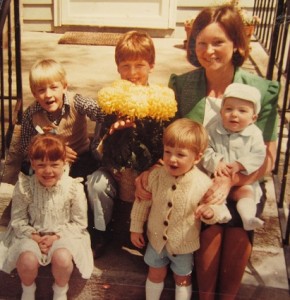My morning prayer time yesterday became overwhelmed with the many severe problems on my post-it notes, each in need of prayer. Can a person become too discouraged to pray? Isn’t that the moment we ought to double-time-it toward God with our needs?
Blubbering all over my notes, I finally set everything aside, closed my mascara-smudged eyes and said, “Father, help me here. What am I supposed to do? What should I be thinking about all this?”
Immediately, from out of nowhere, he plopped an old photo into my mind like a slide into a projector, a 65 year old black and white picture Mom had taken. It’s one of my favorites from childhood and shows a 3-year-old-me sitting on the beach, upset about something. My daddy is leaning over my shoulder trying to do several things:
- hear my words
- understand my problem
- show sympathy
- help me cope
My head is tipped toward his, pressing cheek-to-cheek as if to say, “I’m not going to let you fix this too soon, because I’m really loving being close to you.”
As I sat in my chair, eyes closed, I thought about that picture. What was its connection to my feeling swamped by the heaviness of so many prayer needs? As I sat quietly, God answered that question.
“Margaret, the reason you like this picture is because it shows the power and security of a father’s love. After your daddy came close to you, you became sure everything would end well.
“I’m also your Father. I’m near to you in that same way. I love you as he did, and I care about your problem and those of the people on your notes. You need to have the same confidence in me that you had in him. Since you’re talking to me now instead of him, I’m here to tell you everything is going to end well.”
I was stunned by the simplicity of God’s solution to my predicament. I’d made it far more complicated than it needed to be, so he gently brought me back to the basics:
He can.
I can’t.
The minute any of us puts a toe over the line of “I can fix this myself,” stress soars and tears flow. When we trust God to do the fixing, stress lowers and faith soars.
My task in yesterday’s prayer time, then, was to lift my post-it-people to God, not with a heavy heart but with strong trust in him for whatever comes next in each of those lives. I’m to be confident he has heard, has understood, will sympathize, and will help… just like my daddy.
It didn’t occur to me until I wrote this blog that the first letters of those 4 things God did for me (and my daddy, too) spell HUSH. God had to hush me up so I could listen, before I could understand the right way to talk to him.
“When you ask him, be sure that your faith is in God alone. Do not waver.” (James 1:6)




